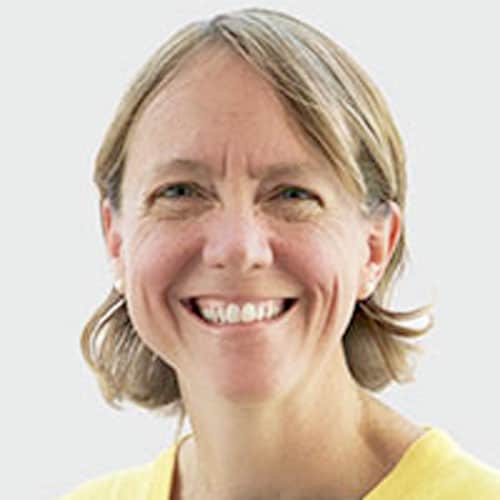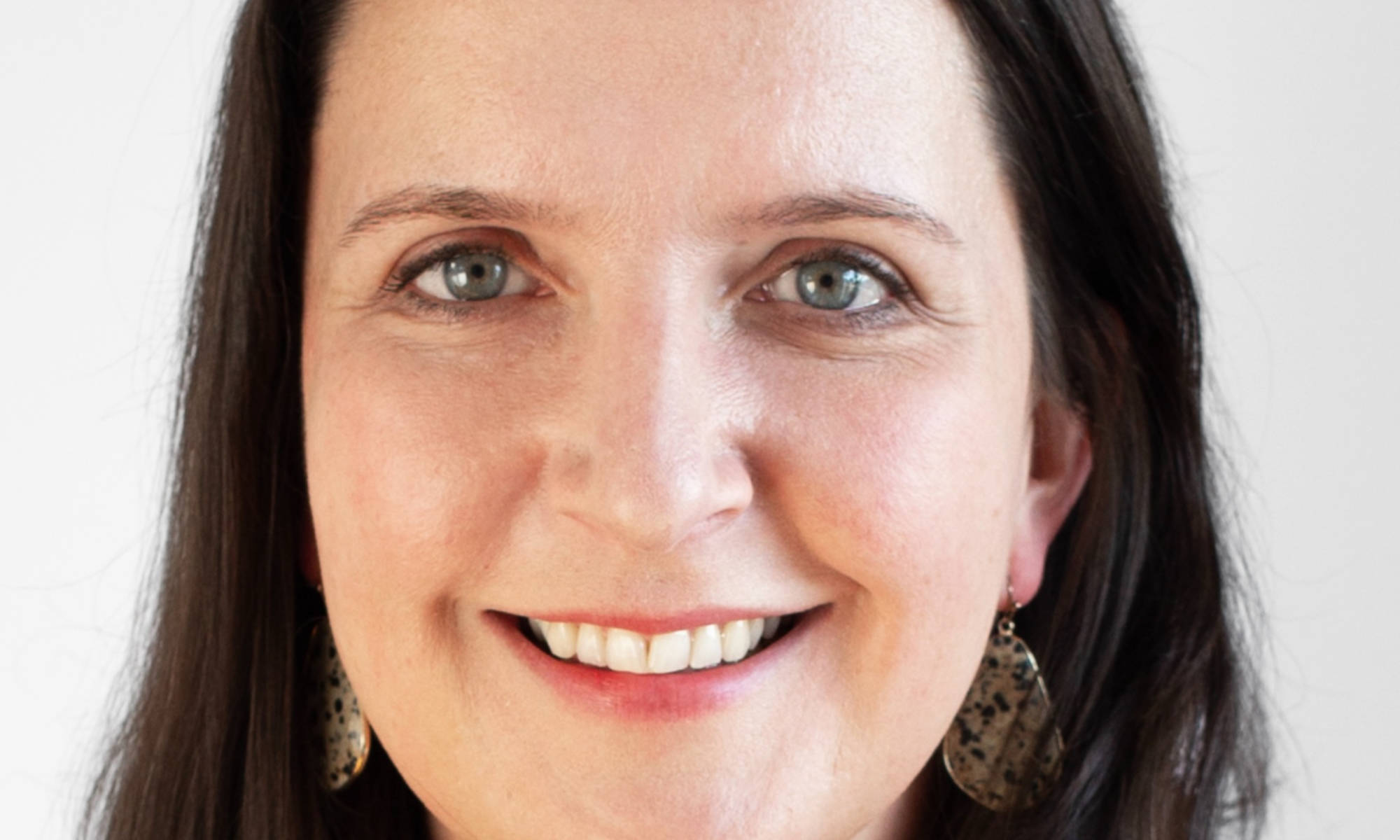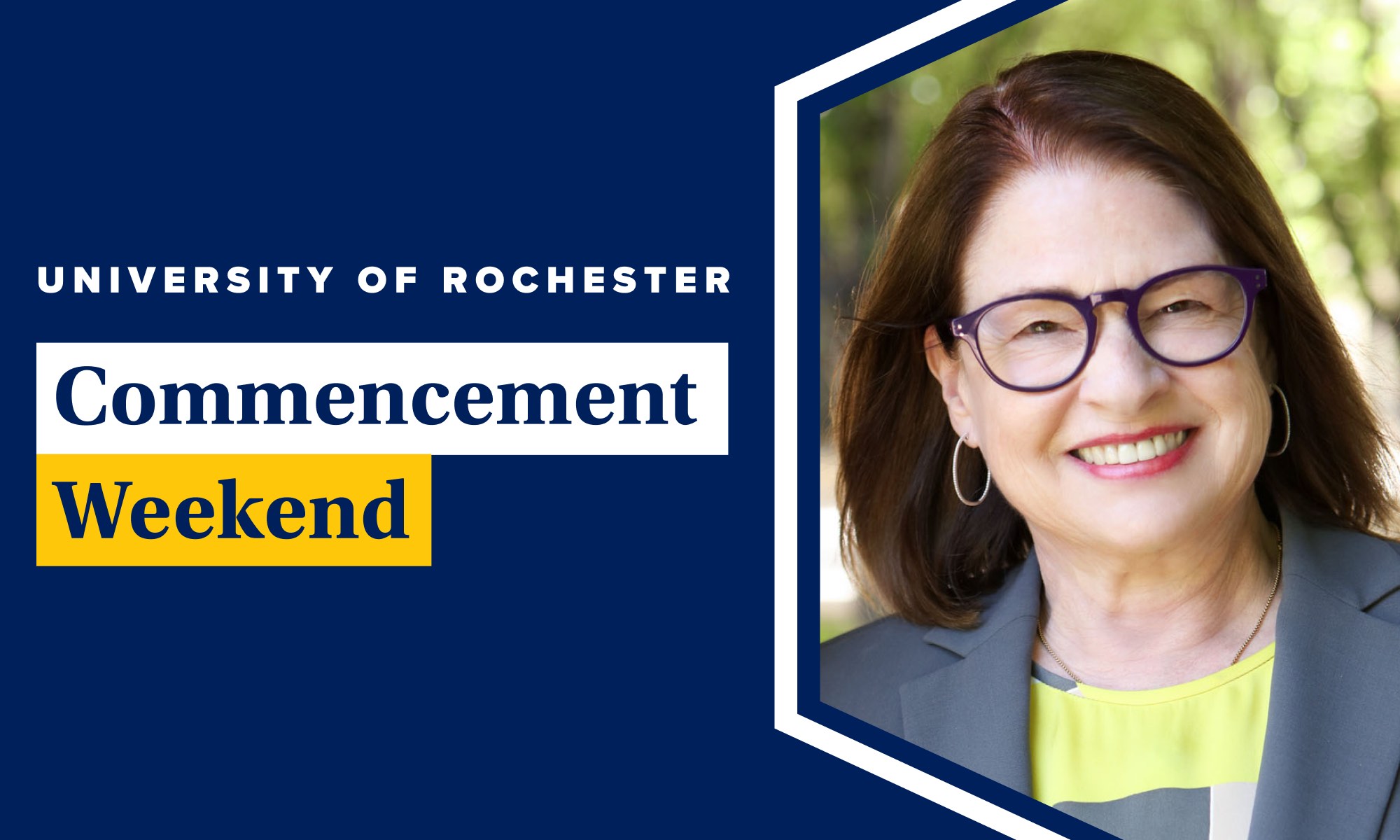Every day the University has an eye toward making tomorrow ever better through sustainable contributions in recycling and waste reduction, ecology, energy, hazardous materials, construction, power plant, and purchasing, as well as groundbreaking research to improve the global environment. In 2015-16, the University earned its first ranking — Silver — in the STARS program sponsored by the Association for the Advancement of Sustainability in Higher Education.
Here are a few more of the year’s sustainability milestones and achievements.
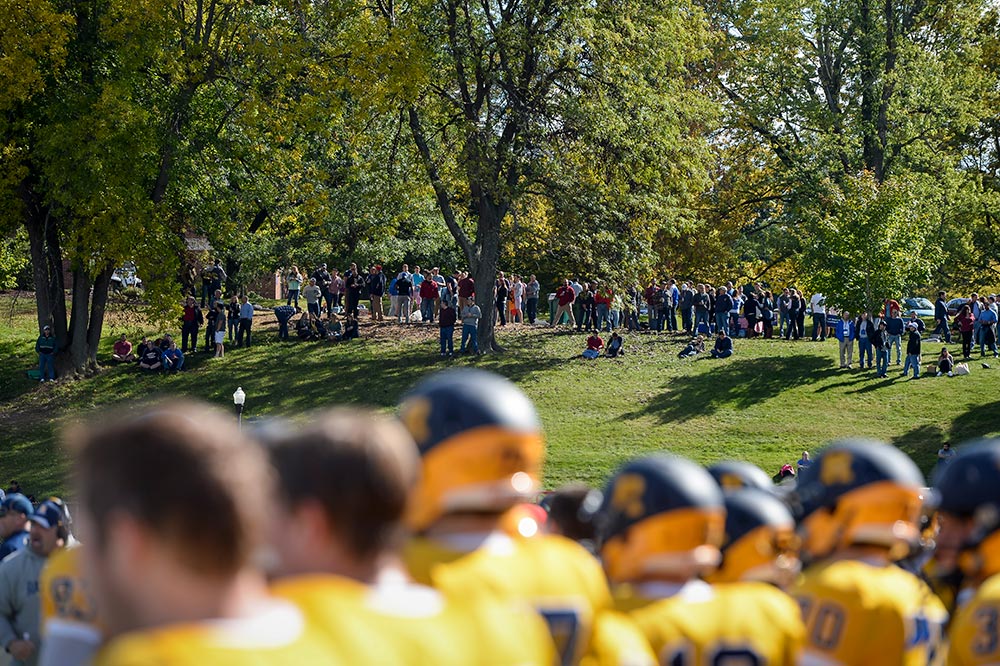 Making Meliora football a ‘zero-waste’ event
Making Meliora football a ‘zero-waste’ event
The University participated in the GameDay Recycling Challenge during Meliora Weekend 2015, which is an effort of colleges across the country to reduce as much waste as possible during home football games. Recycling Coordinator Amy Kadrie set up “zero waste stations” consisting of recycling, compost, and trash bins to help encourage the correct disposal of waste products. Volunteer representatives from EcoReps, Waste Management, and the men’s baseball team helped the University collect 734 pounds of recyclables, 50 pounds of organics, and 53 pounds of trash. By itself, the GameDay Recycling Challenge became the first ever true zero waste event on River Campus.
Studying climate change
The National Science Foundation awarded $4.24 million to Carmala Garzione and John Tarduno, of earth and environmental sciences, to launch a joint U.S.-China research project to explore the role of CO2 in climate change through a study of reverse global warming. The research team includes three Chinese institutions and six other U.S. universities. Garzione and her colleagues will test their theory for why the planet began cooling 3 million years ago: that iron-rich dust from Asian deserts may have fertilized the North Pacific Ocean, stimulating the growth of algae that reduced atmospheric CO2 and ultimately caused the big chill.
 Recycling electronics
Recycling electronics
The University’s eighth annual E-Cycle Day diverted 26,648 pounds of waste from landfills. With new New York State laws making it illegal to dispose of many types of electronics, E-Cycle enabled individuals to recycle their electronics free of charge. University Facilities and Services staff members, brothers from Delta Upsilon Fraternity, and Sunnking Electronics Recycling employees collected unwanted, broken, and old electronics for recycling. 2015’s E-Cycle transported 11,000 pounds more material to the Sunnking recycling plant than last year’s total.
Diverting construction materials
The 2015 Year-End Waste Diversion Report demonstrated that construction and demolition material can account for a significant part of the University’s recycling. In 2015, 70 percent of diverted waste came from new building construction projects as well as dig projects. Recycling asphalt and concrete is a better alternative to sending it to landfills.
Shredding personal documents; recycling paper
With the help of Iron Mountain, a company that specializes in secure document shredding, the University hosted its fifth annual ShredFest. ShredFest is a convenient way for members of the University to securely get rid of their personal information. Over the course of eight hours, the event filled two trucks with 14,940 pounds, or 7.5 tons, of securely shredded documents.
 Supporting local foods and farmers
Supporting local foods and farmers
Well-U is a department built with the health and wellness of University employees in mind. Many of Well-U’s efforts overlap with the University’s sustainability efforts by means of promoting active transportation and fresh local foods. Every Wednesday from 3 to 6 pm, Well-U offers an on-site Farmer’s Market. Well-U also offers the Good Food Collective, which is a Community Supported Agriculture based in Rochester.
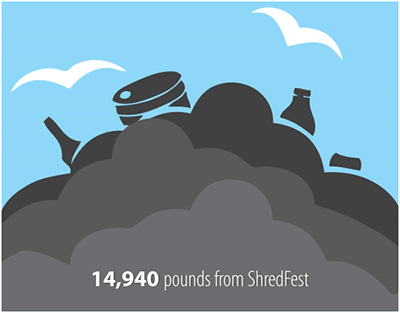 Reusing, donating while moving out
Reusing, donating while moving out
Setting new records, Facilities Team Green held its annual Move-out Cleanout event for its fifth consecutive year. 3,046 pounds of non-perishable food was donated to Open Door Mission and 18,578 pounds of shoes and clothing were donated to Planet Aid. Complementing Move-out Cleanout was the student group Grassroots’ annual Dump & Run event, which collected furniture, appliances, and general supplies to be reused by students in upcoming years.
Meeting green building standards
In July 2015, the Medical Center opened its new $145 million LEED (Leadership in Energy and Environmental Design) certified Golisano Children’s Hospital. Every year more than 85,000 children from the 17-county Finger Lakes region and beyond are helped at Golisano.
Reducing use of plastic bags
The University of Rochester is one of four New York colleges and universities to receive a grant to fund innovative environmental projects as part of the College Council Grant Program. The students in the EcoReps program won the grant to begin implementation of a three-part plan to help reduce, reuse, and recycle plastic grocery bags.
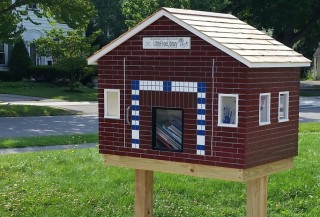 Opening new Little Free Libraries
Opening new Little Free Libraries
Following the success of the University Facilities and Services 2014 Little Free Libraries program, the Medical Center Facilities Operations built another free library at The Children’s School @ URMC. The newest addition continues to promote community-wide book sharing.
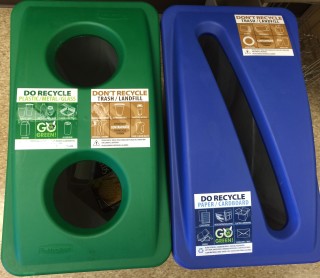 Improving recycling efforts
Improving recycling efforts
University Facilities and Services’ summer intern launched a recycling survey sent to students and staff to get a better understanding of recycling knowledge and gain insight on the effectiveness of internal communication efforts. Information from this survey was then used to make improvements on campus in 2015-16 that would be the most productive. As a result, new recycling bin labels were implemented and new informational recycling posters are available to download and print at www.rochester.edu/sustainability/recycling/.
Addressing environment in the classroom
Established in 2015, the University of Rochester’s Center for Energy and the Environment (CEE) brings together researchers from the sciences, engineering, and health disciplines to tackle some of the most complex environmental issues facing our planet. As experts in their fields, they are developing new energy technologies, exploring the impact of climate change, and addressing the connections between the environment and human health.
Our commitment to the environment threads through many academic areas as well. Our Department of Earth and Environmental Sciences offers academic programs that contribute to a more sustainable existence. Through course-work, research, and field experiences, undergraduate and graduate students gain an understanding of the Earth, its resources, and possible solutions to environmental challenges. Additionally, the Hajim School of Engineering and Applied Sciences’ Department of Chemical Engineering offers a master’s program in alternative energy and an undergraduate minor in environmental engineering.
Converting ethanol more efficiently
A research team led by chemistry professor William Jones developed a more efficient way of converting ethanol to n-butanol. Modifications made by Jones’ team have allowed the reaction to yield more energy and produce no corrosive byproducts. The discovery is just one step in determining how to produce n-butanol in mass. Producing large quantities of n-butanol will allow it to be viable for use in the fuel industry.
Competing in Recyclemania
During the 8-week period of the RecycleMania competition, colleges compete to see who can recycle the most materials and produce the least amount of waste. In the Per Capita Classic competition, Rochester finished 59th of the 269 schools entered, with an average of 18.3 pounds of recycling per person. In the Gorilla category, the University finished 47th among the 276 schools entered, with a total of 435,313 pounds recycled or composted during the competition.
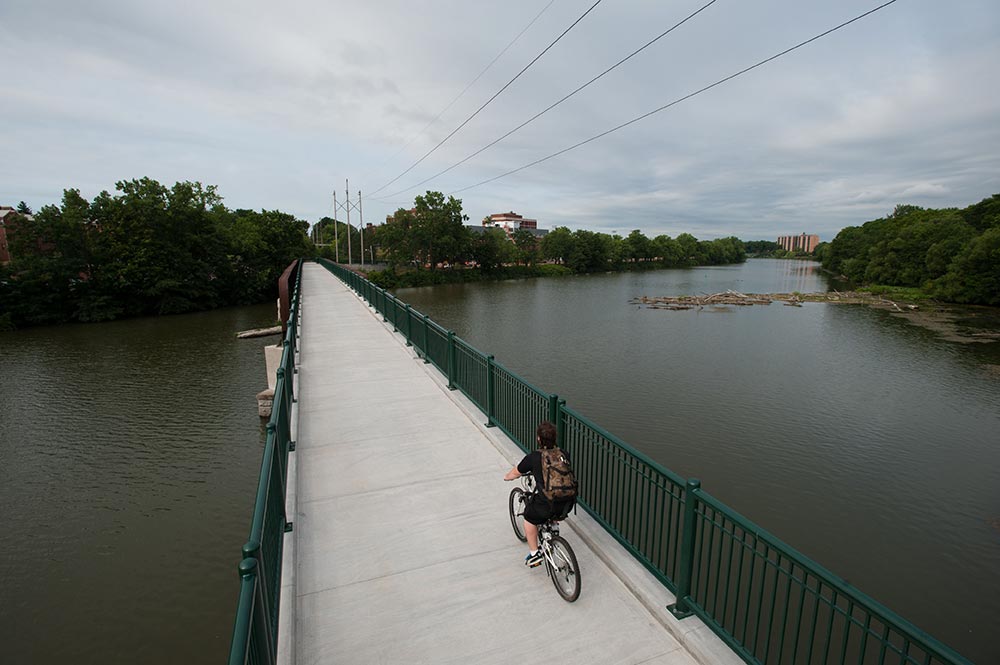
Being bicycle friendly
The League of American Bicyclists recognized the University with 2015 Bicycle Friendly University Bronze Award. The award acknowledges University efforts to promote and provide a more bikeable campus for students, staff, and visitors.
Understanding chemical exposures role in vaccine response
Todd Jusko, assistant professor in the departments of Environmental Medicine and Public Health Sciences, led a team of researchers in providing a foundation for determining how exposures to toxic chemicals such as PCBs and DDT affect the developing immune systems in infants. The University study determined that early exposure to such chemicals diminish an infant’s immune response to the tuberculosis vaccine.
 Moving toward all-antibiotic free chicken
Moving toward all-antibiotic free chicken
University Dining Services has announced that by June 2016, all chicken served on River Campus and at the Eastman School of Music will be antibiotic free. In working with Aramark and local suppliers, Dining Services has been able make this large-scale pledge without additional costs to students or customers.
Speaking for the trees
With its more than 1,400 trees of 116 different species, the University has again been designated a Tree Campus USA institution. The Arbor Day Foundation’s Tree Campus USA program honors colleges and universities that have a commitment to effective urban forest management and that engage staff and students in conservation goals. The University of Rochester was the sixth institution in New York to receive this recognition just after the program began, and has been named a Tree Campus each year since.

